The Advent Season
Advent marks the time of spiritual preparation by the faithful before Christmas, which commemorates the birth of Jesus Christ.
Coming from the Latin phrase "Adventus Domini", meaning arrival of the Lord, the Advent season is for us to reflect back on and celebrate the anniversary of the Lord's first coming into this world, the great mystery of the incarnation when our Lord humbled Himself, taking on our humanity to free us from sin.
It begins on the fourth Sunday before Christmas Day (also known as Advent Sunday and First Sunday of Advent), which can fall between November 27 and December 3, and always ends on Christmas Eve.
Like Lent, the main liturgical colour for Advent is purple since both are seasons that prepare us for the great feast days to come.
Advent includes an element of penance in the sense of preparing, quieting, and disciplining our hearts for the full joy of Christmas.
Common customs observed in churches and at home during Advent are the decoration of the house with an Advent wreath adorned with candles and the keeping of an Advent calendar.
The wreathe is a circle, which has no beginning or end - which allows us to call to mind how our lives participate in the eternity of God’s plan of salvation and how we hope to share eternal life in the Kingdom of Heaven.
Three candles are purple, symbolising that preparation, which includes penance and sacrifice in the lead up to the great joy to come, with the one pink candle symbolising the same but highlighting the third Sunday of Advent, Gaudete (meaning 'rejoice' in Latin) Sunday, when we rejoice because our preparation is now halfway finished.
The light from the flame represents Christ, who entered this world to scatter the darkness of evil and show us the way of righteousness, with the progression of lighting candles each Sunday in the lead up to Christmas showing our increasing readiness to meet our Lord.

